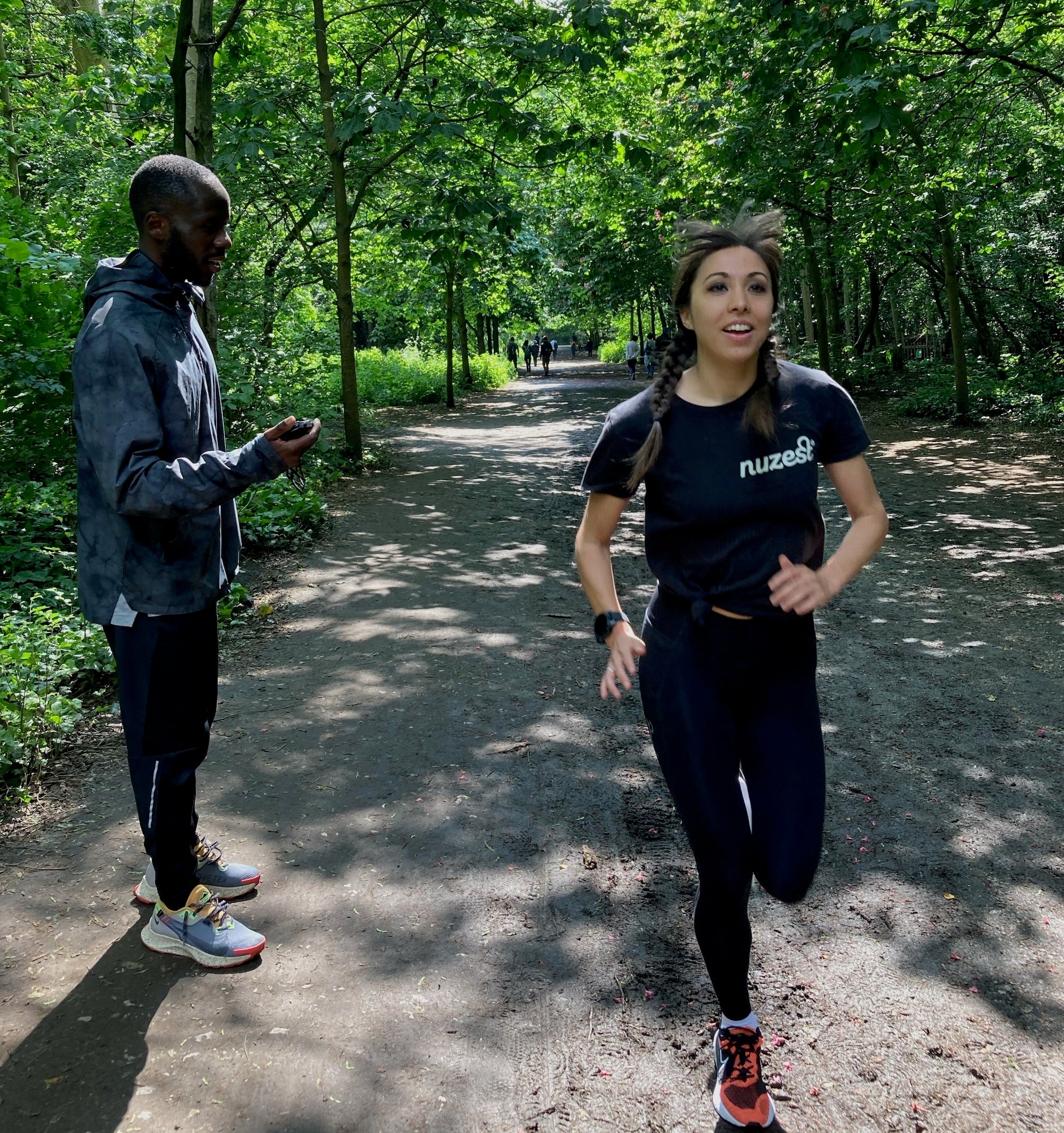Author: Jess Morgan & Coach Manni
I’ve got a place at the London Marathon in October. It’s my first ever marathon and my first time training seriously for a running event, and given my history of injuries and a reckless habit of overtraining and burning out, I decided I’d better enlist a coach to help me get to the start line in one piece and ready to hit my target time of 3.5 hours.
I’ve been working with Manni – a highly respected coach and physio in London – since December, and not only has my running has come on in leaps and bounds since then, I’ve also learned a lot more about my body, fuel and recovery. Here’s a few things I wish I’d known when I first started running:
If you build it (slowly) it will come
It was really important, especially coming from an injury like I was, to start running consistently but without overloading the body. I started with daily short, easy runs of just 2km, which was almost agonisingly short when I knew I could run longer and faster, but it really helped to build the strength and resilience later on.
Embrace the slow runs
Before I had a coach, I treated every run like a time trial, and success was a faster average pace than the run before. Although this worked for a while, it inevitably resulted in a rolled ankle or other injuries. Now I do several runs a week that are deliberately slow, which means that even though I’m still getting the miles in, I’m not pushing myself too hard and can recover faster ready for tougher sessions later in the week. Wear your comfiest trainers, listen to a podcast and enjoy the scenery!
Fuel for health and performance
As someone who is vegan-ish (no meat and mostly no dairy) I knew that it was a bit more challenging for me to get enough protein in my diet, but I’d naively thought that chowing down on plenty of eggs, Quorn and chickpeas was enough to top me up. Turns out I was wrong and I was only getting half the protein I needed each day! That’s where Nuzest comes in, I now depend on it to reach my daily protein goals. It’s super easy to build into my routine – I have a protein smoothie after training sessions or in the afternoon as a snack on rest days. This protects my immune system and supports muscle and tendon repair.
Recovery is training
I used to think that being tired all the time was a badge of honour, and that dragging myself out of bed for a 6am alarm even though my body was screaming out for more rest was just what you do if you’re dedicated to your sport. Recently my mindset has shifted to see recovery as a metric that’s as important to hit as a training session. Once it became something I could fail at, I started prioritising recovery more. Now getting extra sleep and lazing on the sofa doesn’t feel like a cop out but an essential part of my training.
Find a support network
I love training solo, but having a support network has been really encouraging and motivating. I’m in a Whatsapp chat with all the other individuals in Manni’s coaching group and it’s a great space to see where other people are running, ask for advice and celebrate when someone has a great session. Now that restrictions are lifting, I’m looking forward to mixing it up with more in-person training and the chance to push myself against something more tangible than a Strava leaderboard.
